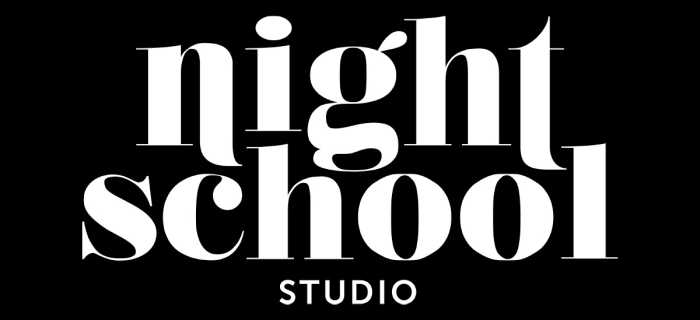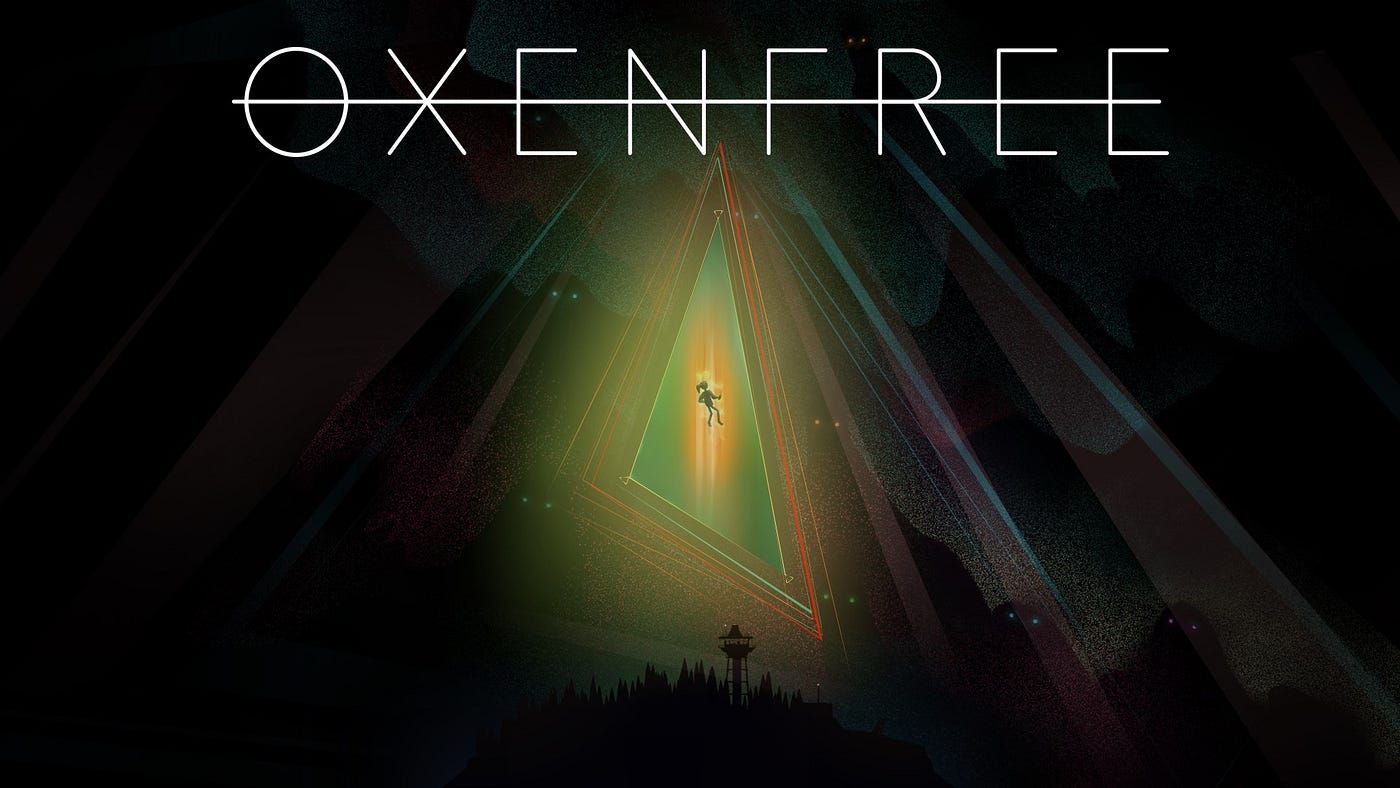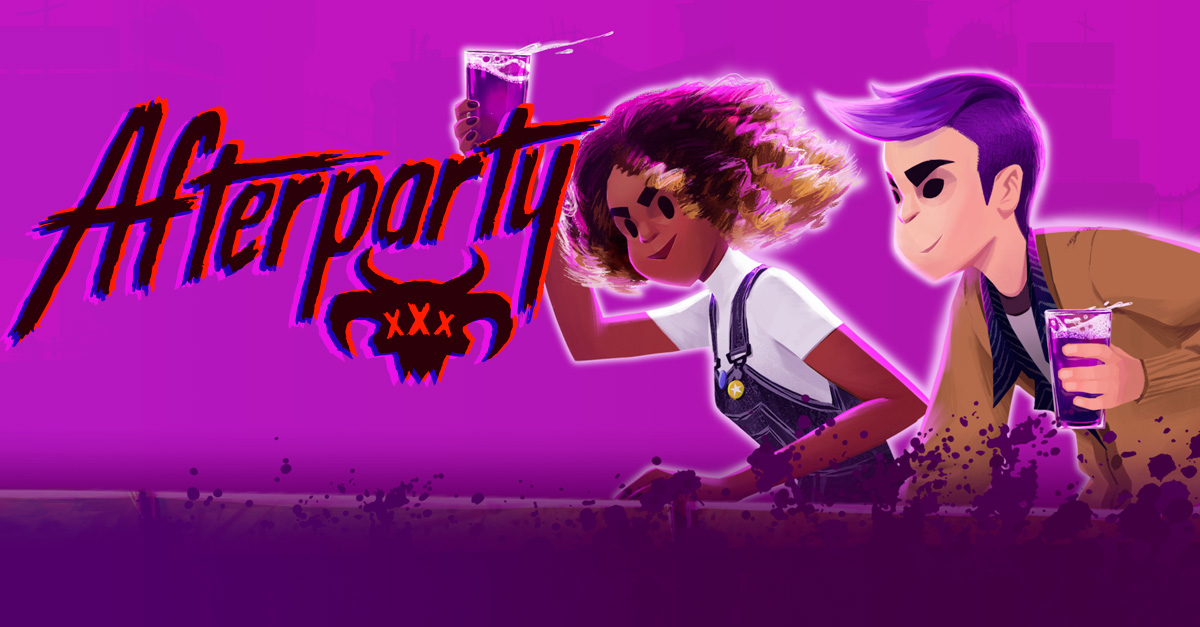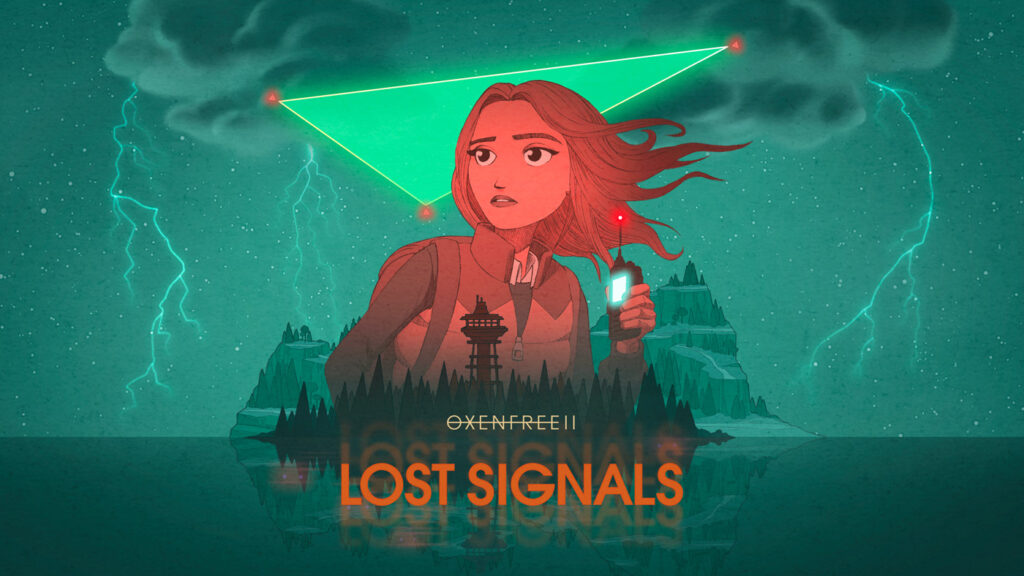Night School Studio Uses The Supernatural and Absurd to Creates Games With Deeply Human Stories

While many video games focus on tight combat or pixel perfect platforming, communication and conversation has been Night School Studio’s trademark feature. Night School Studio was founded in 2014 by cousins Sean Krankel and Adam Hines. As Krankel explained in a detailed 2017 Game Developers Conference talk (GDC talk), one of the major desires of the newly founded studio was to create a game where “the mechanics would only serve to the push the story”. While most games compartmentalize or separate story from gameplay, Night School Studio worked to created a game where the gameplay and story intertwined than being distanced from each other. The eventual result of Night School Studio development process was a remarkable conversation system that mimics the rhythm of real speech and gives the player freedom to shape their player-character.
Since the release of Oxenfree in 2016, Night School Studio (which became a part of Netflix in 2021) has built a stellar reputation on its well-written dialogue and its layer communication system. With the branch conversations system as its foundation, Night School Studio has crafted a series of narrative-driven games that features “relatable, ordinary characters banding together in otherworldly, extraordinary circumstances” (Chan). While Night School Studio’s storytelling structure and style has evolved with each game release, Night School Studio three essential experiences (Oxenfree, Afterparty, and Oxenfree II: Lost Signals) focus on the life experiences and life transitions that individuals face across adulthood. Night School Studio uses heightened supernatural and science fiction premises to explore the complexities of human life and meaningful relationships across a spectrum of ages.
Oxenfree (2016)

Night School Studio’s debut game Oxenfree (2016) set the template for how the studio would explore its characters and key themes. In an interview with GameRant’s Marina DelGreco for the Oxenfree‘s fifth anniversary, Night School Studio co-founder and creative director Adam Hines expressed the desire to a create a game where the player is able to explore “interesting, evocative environments while having player-driven conversations that felt natural and uninterrupted”. Like many of the Night School Studio games that would follow it (excluding the mobile game Mr. Robot:1.51exfiltrati0n), Oxenfree has simple 3D characters that move across detailed 2D backgrounds. The in-game camera is pulled out away from the characters on screen, this camera choice allows the player to more clearly see the conversation thought bubbles and environments. In addition to the complex communication system, Oxenfree‘s other key mechanic is the portable radio. The player uses the radio to interact with the supernatural elements in the game, solve puzzles, and open locks across the game world.
Oxenfree is focused on a group of teenagers (Alex, Jonas, Ren, Nona, and Clarissa) who are caught up in a haunting ghost story on Edwards Island, a remote area off the North West Pacific coast. One part high school drama, one part supernatural nightmare, Oxenfree explores the traumas of Alex’s past, and the uncertainty that comes with the end of high school. As the player works towards key objectives like reuniting with Alex’s friends or escaping the island, the player engages in wide-ranging conversations with the game’s supporting cast (Jonas, Ren, Nona and Clarissa). The player controls how Alex responds to different questions and choices. Night School Studio’s remarkable branching conversation system allows the player to construct their own distinct version of Alex. The approach a player takes to engaging with Alex’s friends can change the relationship between Alex and her friends. All of the branching dialogue options and story variants results in a complete script that is over a thousand pages long (GDC Talk – 12:33).
Grief, loss, and change are key themes of Oxenfree‘s narrative, and these themes are reflected in the experiences of both the human characters and their paranormal tormentors. Alex is grappling with tragic drowning of her older brother Michael, a horrific loss that shattered Alex’s family life. Michael’s death was a factor in the divorce of Alex’s parent as well as her mother’s subsequent remarriage. The divorce and remarriage are a chain of events that lead Alex to bring her new stepbrother Jonas to Edwards Island with her. Jonas has his own lingering traumas; he is struggling to come to terms with his mother’s illness and death. As the line between real and unreal begin to blur on Edwards Island, both Alex and Jonas must confront deep unresolved traumas that have defined their teenage lives. Additionally, Oxenfree‘s ghostly antagonists have their own needs and desires that shape their twisted actions throughout the game.
Outside of the complex grief of losing a sibling or parent, the entire teenage cast of Oxenfree is struggling with the uncertainty of life after high school. In the interview with DelGreco, Hines also asserts that Oxenfree is about “a person entering the earliest years of adulthood, and is nervous about the transition”. Alex and her companions’ uncertainty about surviving their supernatural experiences overshadows a much more intimate uncertainty and angst that the teens have about their own post-high school future. The existential question of whether these five teenagers will ever be together again lurks beyond the immediate concerns of surviving their stay on Edwards Island. The combination of the immediate need to survive and the lurking questions about the future help make Oxenfree a compelling narrative experience.
Afterparty (2019)

Three years after Oxenfree, Night School Studio released Afterparty in 2019. The game explores the debauchery-filled journey of Milo and Lola, two college graduates and longtime friends who finds themselves trapped in Hell. With no memory of their deaths, Milo and Lola attempt to exploit a loophole in Hell in which they can challenge Satan to a drinking contest. Winning the drinking contest allows the two recent college graduates to return to Earth and continue their lives. Milo and Lola spend the game gaining the favor of various denizens of Hell, dealing with a personal demon designed to exploit their insecurities and flaws, and engage in drinking contests. The absurd premise and setting set up an M-rated black comedy that is filled with razor-sharp jokes and wild tonal shifts.
The gameplay of Afterparty is similar to the gameplay of Oxenfree though the player now controls two protagonists instead of one. The player will control Milo and Lola at different points in the adventure depending on their preferences and narrative decisions. While Oxenfree‘s iconic radio mechanic is absent from Afterparty, the 2019 game includes some simple minigames that break up the “walk and talk” gameplay that Night School Studio is so well-known for. This includes beer pong, dance offs, and short quests across Hell. In a profile of Afterparty for the Los Angeles Times, Todd Marten asserts that Oxenfree’s success served as a “proof of concept for Night School Studio to “more aggressively push the exploration of interpersonal relationships in games”. Afterparty iterates on game design and story concepts that Night School Studio established in Oxenfree (branching conversations, gameplay that serves the narrative) while also taking a huge swings with its absurd setting.
While the setting of Hell is perfect for chaotic adventures, the core of Afterparty‘s story is anchored around the complex relationship between long-time friends Milo and Lola. In their strange and hilarious journey through the bars and parties across Hell, the two characters are forced to reflect on their expansive friendship and their individual life journeys. In his profile for the game, Martens notes that Afterparty examines “extended adolescence and learning how to be an adult,” and the game examines a crucial period of change in human life. Both Milo and Lola are characters who have deeply conflicted feelings about their college experiences, unresolved angst about their fractured families, and uncertainty about the future of their friendships.
Like Oxenfree, Afterparty uses an absurd story premise to grapple with the complex questions that often come to the surface when individuals transition from one period of life to another:
“What does it mean to have a best friend your whole life and then go through all these difficulties? What’s the upside? What’s the stuff that gets unearthed? ‘Wait, you said that about me five years ago?’ There’s a lot of nice interplay between the two characters that ideally makes the player start to think about this friendship in ways that are probably similar to their friendships in real life.”
(Hines interview for Martens)
The immediate concerns Milo and Lola have about escaping hell quickly mutate into questions about how to move forward in their lives if they regain them, as well how they will feel about their completed lives if they fail to escape Hell. The two characters are split on the best way to proceed with their lives; Lola aims to move away to pursue new opportunities, while Milo feels compelled to stay in the area to support his mother. How the player chooses to resolve the issue that Milo and Lola face (both individually and together) will result in a variety of different dialogue options and end-game scenarios.
Oxenfree II: Lost Signals (2023)

Released in 2023, Oxenfree II: Lost Signals was the first game published after Night School Studio joined Netflix (the game was already in development prior to the Netflix move). In interview since joining Netflix, the leadership at Night School Studio has stated that the acquisition allowed the studio localize the game in thirty different languages at launch, something that they did not have the resources for as an independent studio. Oxenfree II is focused on Riley Poverly, an woman in her early thirties returning to her Pacific Northwest hometown after years away. The game has similar gameplay to its 2015 predecessor with some enhancements and tweaks. Like Oxenfree and Afterparty, Oxenfree II allows the player to craft their own version of Riley, and the player can be sympathetic towards other characters, antagonize other characters, or ignore some key conversations completely. One of the biggest additions to the game compared to previous Night School Studio games is a walkie-talkie system, which the player can use to talk to unseen characters who are going on their own adventures in the area.
While Oxenfree features a story about the advent of adulthood, Oxenfree II explores complexities of an individual moving out of their twenties and into their thirties. Riley and her new co-worker Jacob Summers are grappling with the missed opportunities, regrets, and “what ifs” that can accumulate in a life. In an interview with Nintendo-Everything, Co-Founder Sean Krankel asserts that the story for Oxenfree II evolved out of question of “what does a coming-of age-story look like for somebody in their early thirties, going through their own sets of challenges and looking back on the choices they’ve made so far” (Serpa). Both Riley and Jacob are force to look both backwards and forward as they stumble into supernatural events across the coastline.
Even more so than Oxenfree and Afterparty, the story of Oxenfree II is a contemplative experience. With their first sequel, Night School Studio made a logical but ambitious to explore a life period that look beyond the ages scope that the studio explored in Oxenfree and Afterparty. While conventionally, society often expects individuals to be settled as they approach their early to mid 30s, Oxenfree II shows that this time period can be filled with its own set of complex emotional challenges and experiences that force reflection. In Oxenfree II, Riley is returning to her costal hometown of Camena after years away, still grappling with a difficult childhood and the choices that led her to leave Camena. In contrast, Riley’s co-worker Jacob is a Camena lifer; someone who has stayed rooted in place for more than two decades. Jacob and Riley’s contrasting experiences, as well as the supernatural nightmares unfolding on the coastline, are the impetus for nuanced conversations about the choices that each individual has made.
Evolving But This Staying True To The Original

In a wide-ranging interview with Moises Taveras for Paste Magazine, several Night School Studio staff members reflected on their experience making games and the evolution of their studio. In the interview, co-founder Sean Krankel asserts that each game feels like “one big project, which is Night School“. Similarly, Bryant Cannon (Director – Oxenfree II) notes that he sees the games as “a bunch of little Lego pieces we put together to tell a story and we’re adding tools to our tool belt to tell stories with more variety and more scale”. Many of the Night School Studio’s core mechanics have evolved over the past decade, and each subsequent game have brought story and mechanics to the studio. A special mentions should also be given to scntfc (Andrew Rohrmann), the composer who crafted the memorable electronic scores for Oxenfree, Afterparty, and Oxenfree II.
Reflecting on forementioned Night School Studio games, it is clear that the studio’s core principal of creating games that features gameplay that serves the narrative remains the beating heart of the studio. The commitment to exploring narrative and player choice, along with the brilliant mechanics and systems that Night School Studio developed to fulfill this core tenet, have helped the company garnered critical acclaim and commercial success. Whether they operated as a fledgling independent studio or as the first game studio under Netflix’s umbrella, Night School Studio has consistently delivered evocative and thought-provoking stories filled with memorable characters, absurd premises, and moving reflections on the human experience.
What do you think? Leave a comment.











I would love an animated show in the universes they create.
I prefer an animated movie, I don’t think there’s enough content to make a whole series out of something like Oxenfree.
I just finished Afterparty and I had fun, but I think it’s not for everyone. The atmosphere is great, the characters are funny and relatable, the situations are entertaining, the minigames for drinking and partying are fun and the lenght is ok.
But if you aren’t into visual novels style stories and you dislike walking a lot while characters talk and vent to you, it’s not for you. It lacks a bit of gameplay in those moments but compensates with its good sides. Maybe with a bigger budget they could improve these segments, like in a sequel. I’d play it!
The writing gets a bit better after 1.5 hours- but as someone who likes exploring, world building, and secrets found through going the “wrong way” this is 100% not my type of game.
This games studio always have such strong storytelling. Oxenfree really pulled me in with its mystery, and I felt so connected to the characters. They need to make more games like this.
Yeah, I didn’t expect to enjoy Afterparty as much as I did. I’m not usually into dialogue-heavy games, but the way the characters talked to each other was just so natural. Totally worth playing.
They make some of the most creative games out there.
Which other gaming studios make similar games?
Night in the Woods by Infinite Fall and Firewatch by Campo Santo are games that might be considered similar or sharing DNA.
Look at the old amiga 500 games. =)
Great overview of their games, but I expected more depth from Afterparty, but the choices didn’t seem to have a real impact on the story.
I’m a sucker for games that let you influence the story, and they nails it.
Def play Afterparty.
Oxenfree is still one of my favorite indie games. I loved the supernatural elements and how you could change the story with your choices.
Bet they’re gonna make a Stranger Things game?
The studio was originally working on a game in the Stranger Things universe with Telltale before they became part of Netflix, but Telltale’s closure helped contribute to the game never being made (2018).
I didn’t hate Oxenfree, but I honestly didn’t really get the hype, either.
I like adventure games, and I don’t have anything against narrative games or so-called walking simulators.
But Oxenfree was just kinda dull, in my opinion. And it crashed a LOT.
So we will have a literal Netflix of Games! 🙂
If you get annoyed by people who never stop talking and interrupting each other, don’t play their latest game.
It’s a quirky dark comedy, sometimes the humor is a bit over the top, but that’s on purpose. It’s just a satire in an innovative setting. I enjoyed it!
I just finished Afterparty, and wow, the visuals were so colorful and weird in the best way. Plus, I loved how you got to make choices with the dialogue—it really felt like my decisions mattered.
I respect how they experiments with storytelling.
Oxenfree felt so different from anything else I’ve played. It was eerie, emotional, and really clever.
I tried Oxenfree, but I felt like the pacing was too slow. The story was interesting, but it dragged on, and the gameplay didn’t do much to keep me engaged.
I really wanted to like Oxenfree, but the controls were frustrating, especially with the radio mechanic. It took me out of the experience and made the game less enjoyable. 🙂
Never heard of their games.
I recommend playing them. Start with their first, Ocenfree.
Night School Studio’s games have great stories, but sometimes the dialogue feels a bit too forced or unnatural. It’s like the characters are trying too hard to be funny or quirky.
I played Afterparty with a friend, and we couldn’t stop laughing!
Don’t forget to try Oxenfree. It has such a natural flow to the dialogue.
The humor and the whole vibe of the game is great.
Honestly, Oxenfree had me on edge the whole time. The spooky atmosphere and that creepy radio thing gave me chills. Night School definitely knows how to build suspense.
I might be one of the few persons that actually didn’t like Oxenfree.
I was excited to see another game from these devs, but boy was Afterparty underwhelming.
I disagree. One of the best adventure games I have ever played. The interface is fantastic, the writing is consistently hilarious and the story is brilliant.
cool studio. I liked Oxenfree so I’m glad the developers came out with another game.
The idea of afterparty is interesting and the commentary is enjoyable, but there is a lot of jank. Voice lines skipping, getting stuck while trying to walk, clipping.
Wish it was less linear with more mini-games.
The witty banter between characters and the crazy world-building is mint with them.
I love Night School Studio’s games! Oxenfree was such a cool experience. The story was super unique and the dialogue felt real. I can’t wait to see what they do next!
Afterparty was hilarious! The idea of outdrinking Satan to escape hell? Genius! The humor and writing were spot on. This studio knows how to make fun, quirky games.
Afterparty had such a cool concept, but the gameplay felt kind of repetitive. It was more like just clicking through dialogue than actually playing a game.
Night School Studio really knows how to do dialogue!
Afterparty and Oxenfree are both unique in their own ways.
I really like what they did with Oxenfree II. Not often do we see main characters in that age group, especially in “coming of age” games that usually portray younger characters. If they made the protagonist another teenager/young adult, it’d certainly be a good game, but it’d be more of the same, in a way.